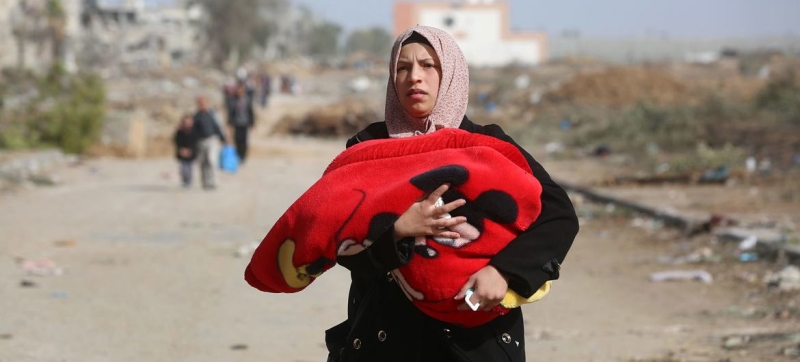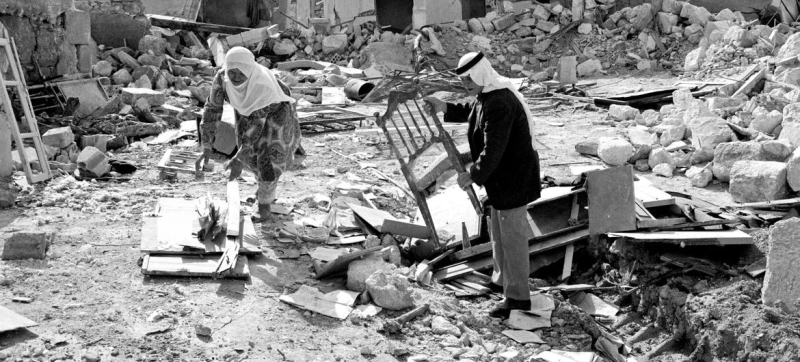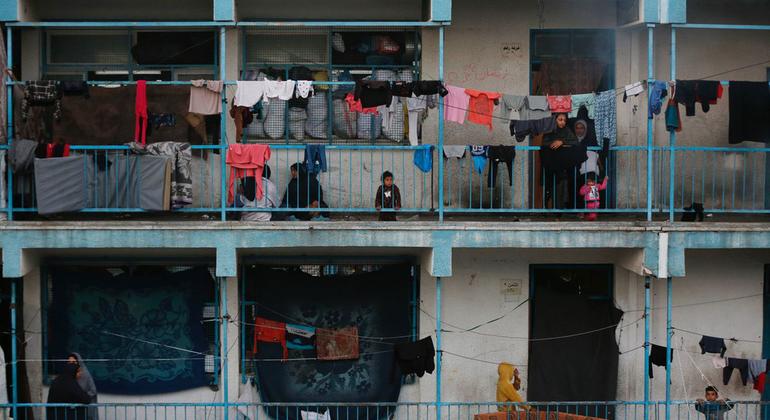
UNRWA’s primary mission is to provide assistance to registered Palestinian refugees. EXPLAINED | Why Israel’s Effort to Stop UNRWA Is Dangerous? Humanitarian Aid
Last week, Israel’s parliament, the Knesset, voted in favor of a bill targeting the United Nations Agency for Palestine Refugees in the Near East (UNRWA). The bill could completely halt the agency’s operations in the occupied Palestinian territories. Here are five things you need to know about the bill, as well as the potential consequences of its implementation.
What the bill says?
The bill, approved by Israeli lawmakers by an overwhelming majority (92 in favor, 10 against), would ban the country’s authorities from having any contact with UNRWA, and the agency from operating in Israel.
Delivering humanitarian aid to Gaza and the West Bank requires close coordination between UNRWA and the Israeli authorities. Israel will now stop issuing work permits to the agency’s staff and will bar them from entering the country, making it impossible to coordinate with the Israeli military to ensure the safe delivery of aid.
Why the Law Was Passed?
Israeli politicians have long criticized UNRWA, accusing the agency of supporting Hamas. These allegations have become even louder since Hamas militants attacked Israel on October 7, killing more than 1,130 people.
In recent months, several senior Israeli government officials have condemned UNRWA, with one diplomat calling the agency “a Palestinian organization fully committed to the destruction of the Jewish state.” The day before the Knesset vote, the bill’s sponsors said UNRWA “instills hatred of Israel in children and spreads anti-Semitic ideas.”
Meanwhile, an independent UN investigation in April confirmed that UNRWA adheres to the principle of humanitarian neutrality to an even greater extent than other UN agencies and NGOs. Briefing the Security Council that same month, UNRWA Commissioner-General Philippe Lazzarini said the agency remained the bedrock of all aid operations in Gaza amid a campaign by the Israeli authorities to push the agency out of the occupied Palestinian territory.
What is UNRWA’s role in the occupied Palestinian territory?
UNRWA was established shortly after the founding of the United Nations itself, by General Assembly resolution 302 (IV) following the 1948 Arab-Israeli War. Its primary mission is to assist registered Palestine refugees, defined as “persons whose habitual residence was in Palestine during the period 1 June 1946 to 15 May 1948 and who lost their home and means of livelihood as a result of the 1948 war.”

Displaced persons return to their homes in the Israeli-held town of Abaseyeh, destroyed during the 1978 Israeli invasion of southern Lebanon (archive).
For decades, the agency has provided humanitarian aid to Palestinian refugees in areas controlled by Israel, particularly in the Occupied Palestinian Territory, including the West Bank and Gaza Strip. The agency runs medical facilities, schools and vocational training centers.
How the UN responded to the law?
The reaction from the UN system to the bills was swift and unequivocal, with several senior UN officials, including the Secretary-General, condemning the decision. António Guterres pointed to UNRWA’s vital role in providing aid to the Palestinians and said the ban would have “devastating consequences.”
Acting Under-Secretary-General for Humanitarian Affairs Joyce Msuya called the Knesset decision “dangerous and outrageous,” while UNRWA chief Philippe Lazzarini said the law passed by the Israeli parliament “constitutes a collective punishment of the Palestinians and will further increase their suffering.”

The representative of the Office of the United Nations High Commissioner for Human Rights (OHCHR) Jeremy Lawrence said that without UNRWA, humanitarian aid supplies to the occupied Palestinian territories will cease, and the head of the World Health Organization Tedros Adhanom Ghebreyesus called this development “unacceptable.” UNICEF Director Catherine Russell, in turn, said that “the lives and future of Palestinian children are at stake.”
What will happen next?
If the law passed by the Knesset is not revised, it will come into force within 90 days of its adoption. The UN Secretary-General told the President of the General Assembly that he had written to Israeli Prime Minister Benjamin Netanyahu calling on his government to continue to support UNRWA and to respect Israel’s obligations under international humanitarian law.
The members of the UN Security Council issued a collective statement on Wednesday strongly warning against any attempt to dismantle UNRWA or scale back its operations. They also expressed gratitude to the agency’s staff for their work.
